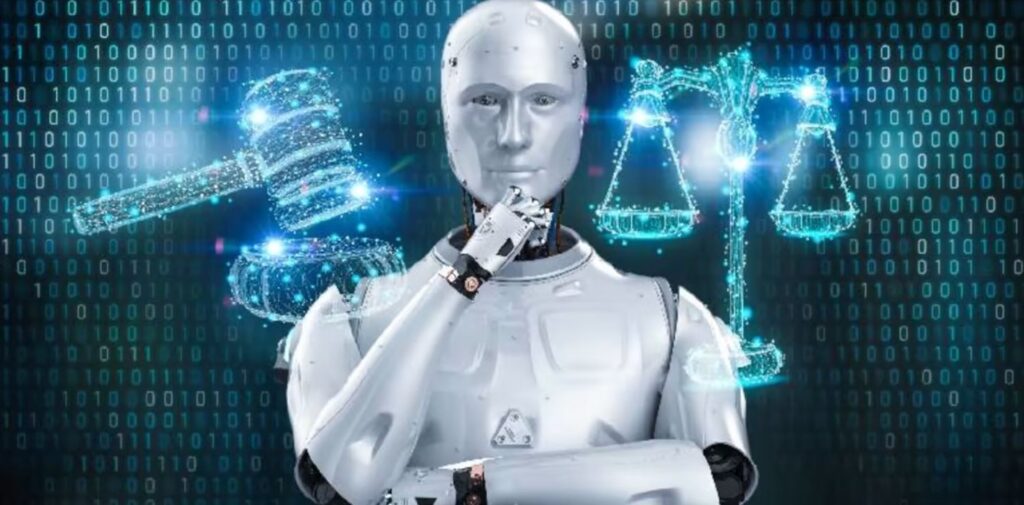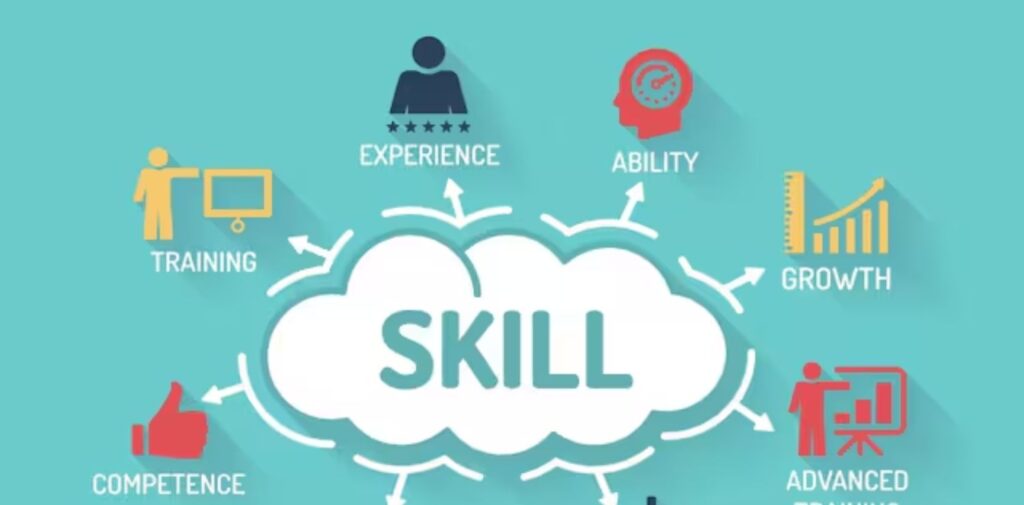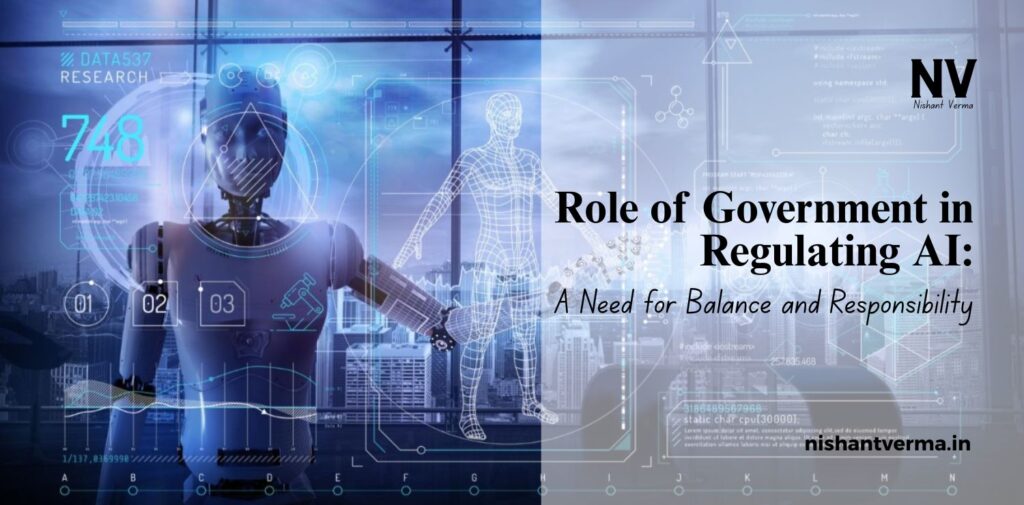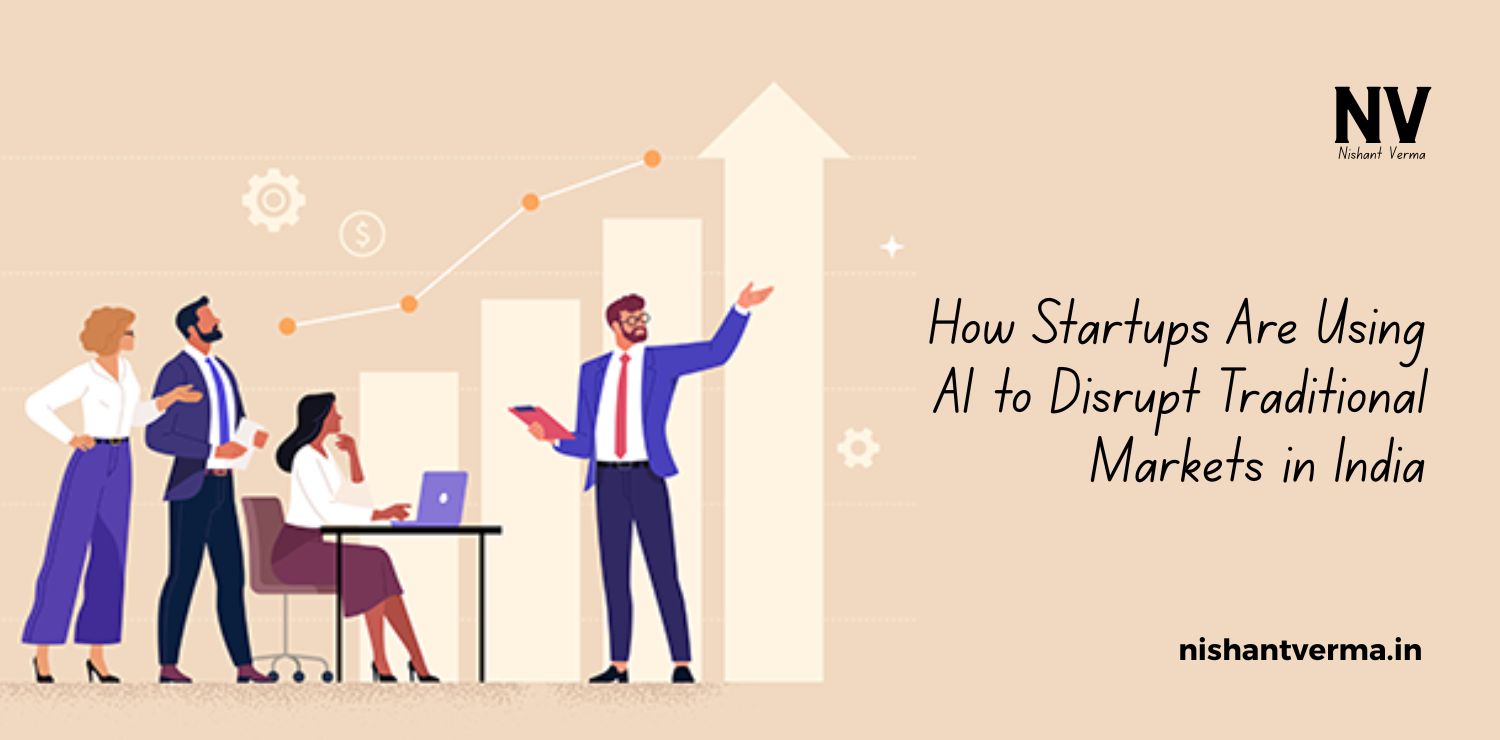Artificial Intelligence (AI) is transforming our world in many ways. From voice assistants like Alexa and Google Assistant to advanced medical diagnoses, self-driving cars, and even financial decision-making, AI is becoming part of our everyday life. In India too, AI is beginning to play a big role in sectors like healthcare, education, agriculture, and governance. While AI brings many benefits, it also brings some challenges and risks. This is where the government plays an important role in regulating the development and use of AI.
Governments around the world, including India, are trying to find the right balance between encouraging innovation and protecting the rights and safety of citizens. This article explores why government regulation of AI is important, what areas need attention, and how India can create policies that support safe and inclusive growth of AI technologies.

Why is AI regulation necessary?
Artificial Intelligence is a powerful tool. It can help solve many problems, but it can also cause harm if used wrongly or without control. For example, AI can be used to spread fake news, steal personal data, or make unfair decisions that affect people’s lives. Without proper rules and regulations, companies or individuals may misuse AI for profit or power, ignoring the impact on society.
In India, where we have a large and diverse population, the impact of AI can be very different from one region to another. For example, an AI model trained in an English-speaking city might not work well in a rural village with local dialects. If not regulated, such AI tools could exclude or discriminate against certain groups. That’s why it is important for the government to step in and make sure that AI systems are safe, fair, and beneficial for all.
Ensuring ethical use of AI
One of the main roles of the government is to make sure that AI is used ethically. This means AI should not be used to harm people, invade their privacy, or make biased decisions. For instance, if a bank uses AI to decide who gets a loan, the system should not unfairly reject people from certain communities or backgrounds.
To ensure this, the government can make rules that require companies to test their AI systems for fairness and transparency. These rules should also include punishment for those who break them. The government should also encourage the development of AI tools that promote social good, such as AI for public health, education, and disaster management.
Ethical AI also means protecting the privacy of people. AI often needs large amounts of data to work well, but collecting data without permission is a serious problem. The government should introduce strong data protection laws and make sure that people’s personal information is not misused.
Creating clear policies and guidelines
For AI to grow in a safe and healthy way, there needs to be clear government policies. These policies should explain what is allowed and what is not. They should also guide companies, developers, and users on how to build and use AI in a responsible manner.
India is already moving in this direction. The NITI Aayog, a government think tank, has been working on developing a national strategy for AI. The goal is to make India a leader in AI while making sure the technology is inclusive, safe, and ethical. But more work is needed. India still lacks a specific AI law. We need a legal framework that clearly defines the roles and responsibilities of all stakeholders – the government, private sector, researchers, and citizens.
The policies should also focus on transparency. If an AI system makes a decision, people should be able to understand how and why that decision was made. This will build trust and reduce fear or confusion about AI.

Protecting jobs and supporting skill development
AI will change the way many industries work. Some jobs will become easier, while others may disappear. This can cause fear among workers. The government has a duty to help people prepare for this change.
One important step is to invest in education and skill development. The government should support training programs that teach AI-related skills such as data science, machine learning, and coding. These programs should be available in regional languages and accessible to people from all backgrounds – not just those in big cities.
At the same time, the government should promote AI in a way that creates new jobs. For example, AI can help farmers improve crop quality or help doctors diagnose diseases better. These are areas where new kinds of jobs can be created with the help of AI.
The government can also encourage startups and local innovation in AI. By supporting small companies and entrepreneurs, India can develop its own solutions that suit Indian problems, rather than relying only on foreign technologies.
Setting up independent regulatory bodies
To ensure that AI is used responsibly, the government can create independent regulatory bodies. These bodies would monitor the use of AI in different sectors, investigate complaints, and enforce laws. They can also work with international organizations to keep up with global standards.
Such regulatory bodies can include experts from various fields – technology, law, ethics, and social sciences. They should be free from political pressure and have the authority to take action when needed. Their role would also include educating the public about AI, so that more people understand how AI affects them and what their rights are.

Encouraging public participation and awareness
A major part of regulating AI is listening to the people. The government should involve citizens in discussions about AI policies. Public consultations, awareness campaigns, and workshops can help people understand AI better and give their feedback.
In India, where people speak many languages and come from different cultures, public participation is even more important. AI solutions must reflect the diversity of our country. By listening to the public, the government can make better policies that are inclusive and fair.
Awareness campaigns can also help people spot and report harmful AI activities, such as deepfakes, cyber fraud, or biased algorithms. Educated users are the first line of defense in preventing the misuse of AI.
Conclusion: A balanced approach for a better future
The development of AI is like a fast-moving train – full of potential, but also with risks. The role of the government is to act like the driver of that train, guiding it safely and making sure no one is left behind. In India, where technology can be both a great equalizer and a source of inequality, regulation is not about slowing down AI, but about using it wisely and fairly.
By creating ethical rules, supporting skill development, encouraging local innovation, and involving the public, the government can ensure that AI becomes a tool for national progress. The right balance between innovation and regulation will help India build a future where AI serves all citizens, not just a few.
The future of AI in India depends on responsible action today. With strong and thoughtful regulation, we can turn AI into a force for good – for our economy, our people, and our nation.




